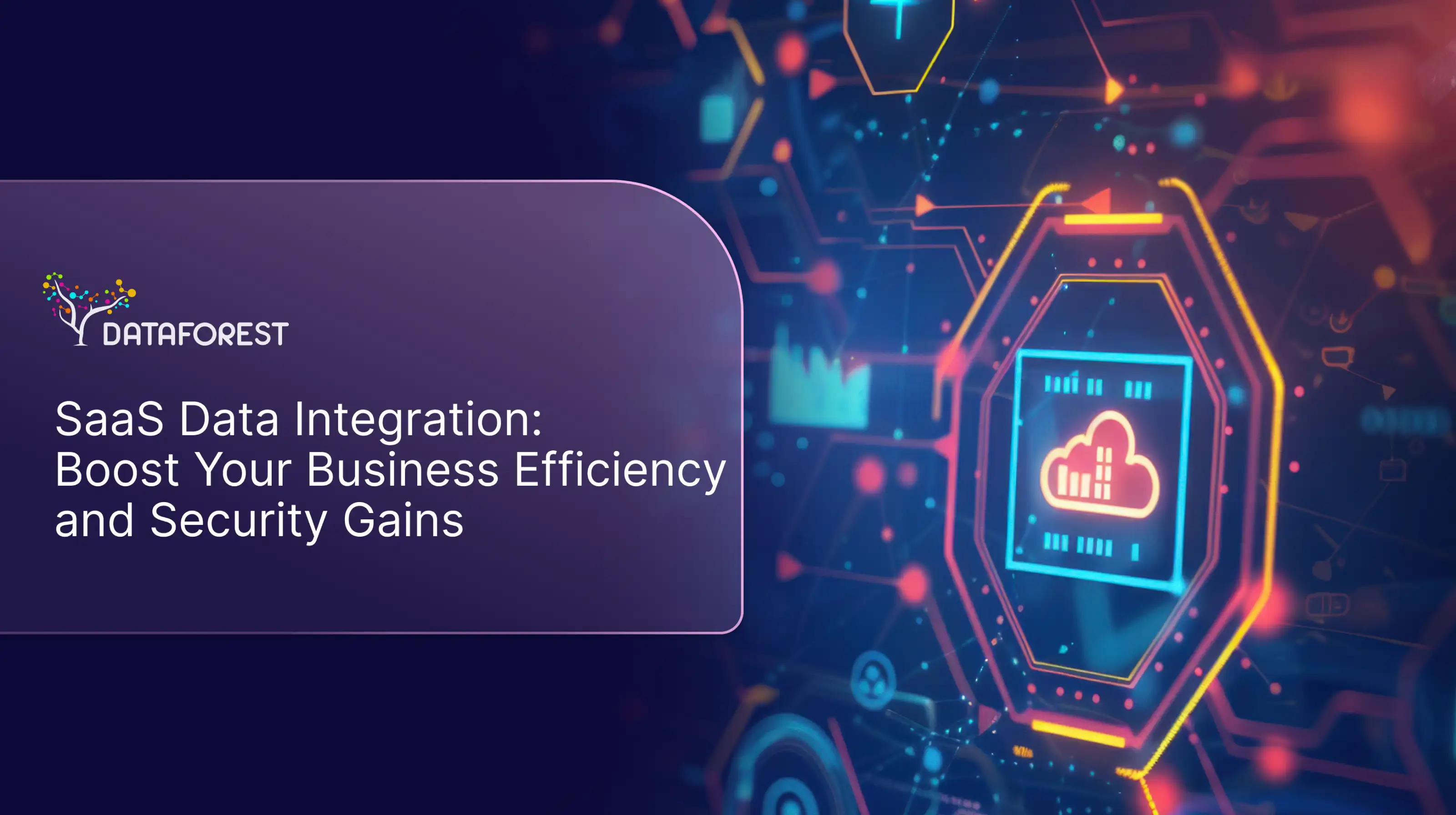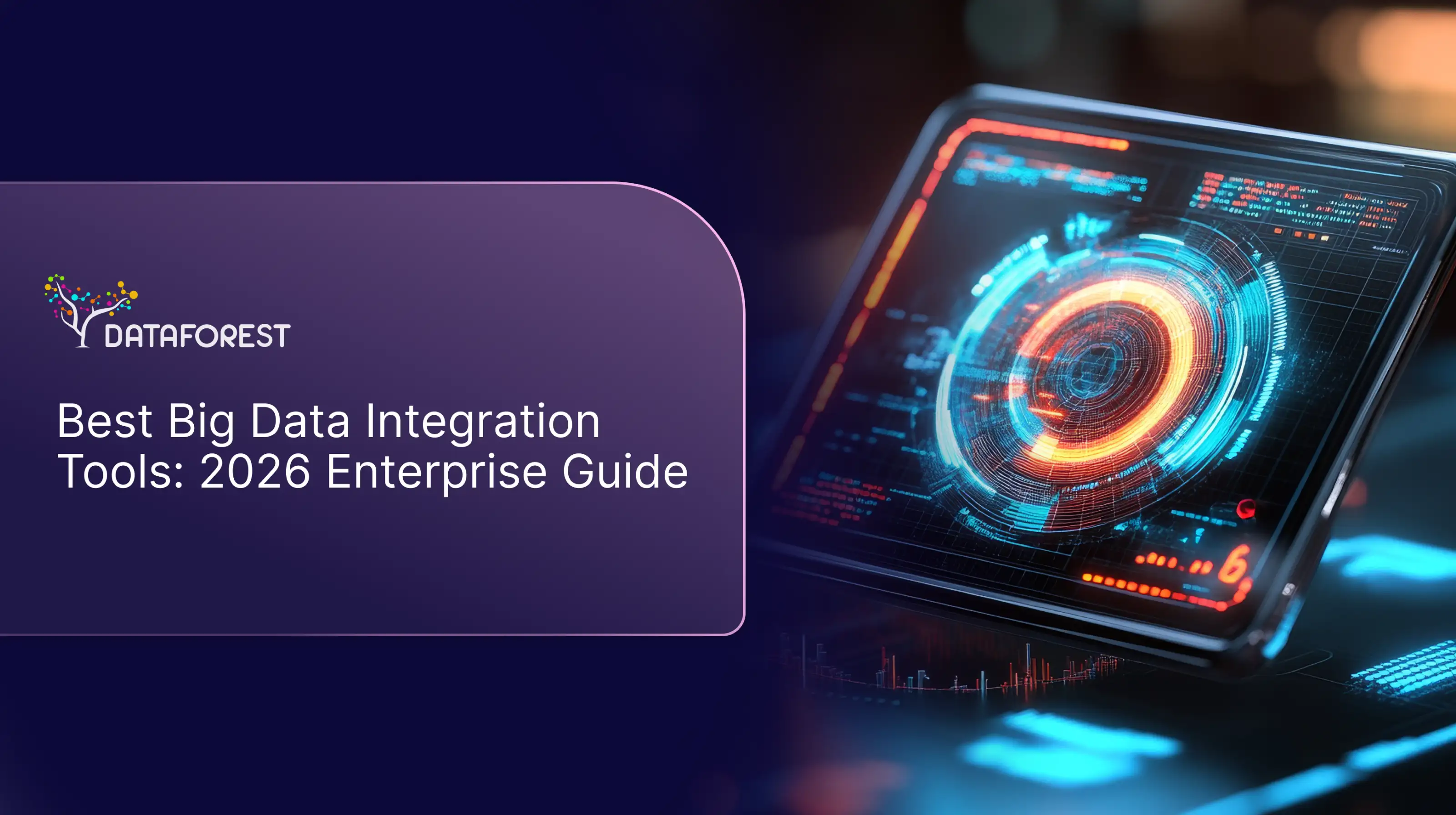A mid-sized manufacturing firm discovers data integration failures between its legacy systems and new cloud infrastructure. They halt operations and threaten imminent bankruptcy. Their small IT team lacks specialized knowledge in complex data pipelines, while the required technology upgrades demand expertise in outdated systems and modern architecture. With revenue losses mounting hourly and customers threatening to leave, only an experienced data engineering company can quickly diagnose, develop custom integration solutions, and implement them fast enough to save the business. DATAFOREST will do the same; you need to arrange a call.

Understanding Data Engineering Needs
- Take a hard look at your systems. Where are the bottlenecks? Which integrations keep breaking? Is your ETL pipeline more "E-T-Hell"? Map out where your big data pipeline architecture gets stuck or goes wrong.
- What's the actual business problem you're trying to solve? Need faster insights for marketing? Better inventory tracking? Translate these into concrete KPIs to measure ROI later, especially when considering data engineering and platform services to support those goals.
- Be honest about what your team can(not) handle. Need Spark expertise? Snowflake wizards? Airflow orchestration skills? Document the skills and tech stack gaps you need to fill. Hiring data engineers or professional data analysts to augment your team might be time-consuming.
- Put dollar figures on your data headaches. How much does poor data quality cost you? What's the price of delayed insights? Set realistic deadlines based on business urgency and consult with data center infrastructure services firms for budgeting and scale planning.
- Create your shopping list of must-haves vs. nice-to-haves. Draft specific questions about the automated data processing company's experience with similar data volumes, tech stack familiarity, and how they've solved similar challenges.
Key Factors to Consider When Hiring a Data Engineering Company
Businesses need key factors to assess companies that hire data engineers because these specialized vendors will handle their most sensitive data assets, requiring careful evaluation of technical expertise, security practices, and cultural fit. The wrong choice can lead to costly project failures, data breaches, or poorly implemented big data solution architecture that creates technical debt rather than solving fundamental data challenges.
Industry Experience & Expertise
Specialized sector knowledge enables data center infrastructure companies to understand industry-specific data challenges, compliance requirements, and workflow intricacies without costly learning curves. Companies with proven experience in your particular vertical bring valuable best practices, benchmarks, and data engineering solutions already tested in similar environments. Their familiarity with industry-standard systems and data structures significantly reduces implementation time and risk while maximizing the business value of your data initiatives.
Technology Stack & Tools
A data processing services company's technology expertise should align precisely with your current infrastructure while offering strategic guidance on modern tools to enhance data capabilities. Evaluate their proficiency in cloud data infrastructure, ETL/ELT tools, cloud services (AWS/Azure/GCP), and orchestration frameworks that match your specific ecosystem. Their mastery of both established enterprise solutions and emerging open-source technologies indicates their ability to build maintainable data pipelines tailored to unique business requirements.
Data Security & Compliance
When you trust someone with the company's data, you must ensure that automatic data processing vendors are not compromising security. We're talking solid GDPR, HIPAA, or CCPA compliance. A serious partner will show encryption games, access controls, and audits. They should also handle data center infrastructure management with precision and a proactive strategy.
Scaling Your Success
A data engineering partner needs to prove they handle your growth without breaking a sweat — think enterprise data lake engineering services, distributed computing, intelligent allocation, and the ability to handle massive pipelines. Look for how they optimize data infrastructure and analytics, reduce costs, and enhance performance. When evaluating potential partners, look for their track record in optimizing query performance, implementing efficient ETL processes, and leveraging technologies — distributed computing and parallel processing to keep things running smoothly as your data explodes. They should be able to show you real examples of how they've helped other companies scale from handling gigabytes to petabytes of data, with concrete metrics on performance improvements and cost optimization strategies that won't break the bank as you grow.
Seamless Data Integration Engineering Services
Finding a partner who smoothly integrates with existing systems is crucial. Whether you're working with big data architecture, APIs, or mixed platforms, a good fit can speak your systems' language and ensure consistent delivery across the data processing pipeline, migration paths, and long-term support strategies. A solid partner should demonstrate experience bridging gaps between different technologies, platforms, and data formats to show how they've handled similar integration challenges without disrupting business operations or creating tech debt. They need to prove they can speak your systems' language, whether that's working with your current ETL tools, data warehouses, or BI platforms, and have a clear plan for handling data migration, system synchronization, and maintaining data consistency across your entire tech ecosystem.
Data Engineering Needs and Where to Find the Right Company
This matrix helps you match your data engineering needs with the best resources to find the right company, whether looking for automation, scalability, security, or advanced analytics expertise.
Book a call, get advice from DATAFOREST, and move in the right direction.
Evaluating Data Engineering Partners — Beyond the Sales Pitch
Choosing the right data processing services company is like entering a long-term relationship. You need to know they’re the real deal.
Portfolio & Case Studies: You need to see actual projects where they've tackled similar challenges to yours, not PowerPoint presentations. Dig into their tech stack choices and system architectures, and get them to show you the numbers (like how they slashed query times or saved their client's serious cash on cloud costs).
Client Reviews & Testimonials: Skip the sugar-coated marketing speak and get the dirt from their existing clients, especially those in your industry who've been in your shoes. Talk to actual clients. See if they could hire data management engineers quickly, solve integration challenges, and meet demanding SLAs.
Trial Projects & Proof of Concept (PoC): Before you put a ring on it, take them for a test drive with a small project to show if they're all talk or can walk. Have them tackle a real problem you're facing — it's the best way to see if they know their ETL from their APIs and if their team meshes with yours before you commit to the big stuff.
Understanding the Fine Print in Data Engineering Partnerships
Pricing Models
Nobody likes surprise bills, especially in big data projects. Whether data analytics engineering services charge you fixed-price (like a flat fee for building that data warehouse), time-and-materials (paying for their actual hours), or retainer (monthly subscription style), make sure you know what you're getting into. Read those "small" extras like emergency support at 3 AM or extra cloud storage that can add up faster than the AWS bill during a data migration gone wrong.
Contract Terms & SLAs
Here, we separate the pros from the pretenders. SLA shouldn't read like a philosophy book — it needs numbers: "99.9% uptime" or "15-minute response time for critical issues." Get crystal clear on who owns what data (hint: it should be you), what happens to your code and pipelines if you break up, and precisely what "regular maintenance" means. If they start getting squirrely about putting specifics in writing, that's a red flag bigger than a failed production deployment.
Final Steps & Decision Making
Get your dev team to grill them on their tech chops, let legal do their thing with the contract, and have finance run the numbers. Consider if their company's hiring process ensures you’re working with top-tier engineers. Trust that instinct if something feels off during the sales pitch or the vendor dances around questions about ETL processes or data security protocols. Better to spend more time choosing now than dealing with a messy tech divorce later.
Benefits of Partnering with the Right Data Engineering Provider
Partnering with the right data engineering provider (for example, DATAFOREST) helps businesses make more intelligent decisions by optimizing data flows and delivering real-time insights. They provide custom microservices and AI solutions that fit into your existing systems, so you don’t have to worry about disrupting your workflow. They also ensure that data is secure, clean, and compliant so you can focus on growing a business without the extra headaches. Please complete the form to use the data engineering consulting services.
FAQ
How do I choose the right data engineering company?
Look for a company with proven experience in your industry and expertise with your tech stack. They should be able to demonstrate successful project outcomes and show precise, measurable results.
How much does it cost to hire a data engineering company?
Costs can vary based on the complexity and scope of the project, the technologies used, and the company's expertise. It's essential to evaluate the potential return on investment and the quality of the solution provided, not just the upfront price. It depends but always factor in the long-term ROI. Also, data analysts should be hired for specific in-house tasks to control costs.
How long does it take to implement a data engineering project?
Implementation time depends on factors like the scale of your data infrastructure, the complexity of the integrations, and the current state of your systems. A project could take a few weeks to several months.
Can a data engineering company help with real-time data processing?
Data engineering companies and DATAFOREST specialize in building data pipelines and architectures. We can implement stream processing and event-driven systems to handle your real-time data needs.
What are the key skills a data engineering company should have?
Key skills include expertise in data integration, ETL processes, cloud platforms, and distributed computing. Proficiency in modern tools like Apache Spark and Kafka and orchestration frameworks like Airflow is crucial.









.webp)

.webp)













